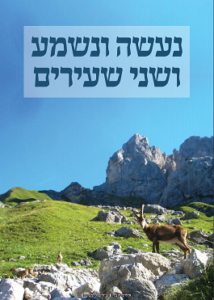On February 15, I ordered an out of print pamphlet from an online bookseller called Oddball Books, based in La La Land, People’s Democratic, Liberated, Socialized, Tummy Tucked and Sometimes Electrified Republic of California. I requested that it be sent to my post office box here in the People’s Hillaryized Republic of Gotham. Oddball duly informed me by e-mail that it was mailed through the Post Office’s Priority Mail service on Friday, February 16. Impressed by the efficiency of private enterprise, but aware that using the government’s mail was risky business, I eagerly anticipated the arrival of a rare work by Frank Chodorov, albeit with some uneasiness. This would fill a lacuna in my library, and amuse the dust mites that call it home.
Priority Mail advertises two to three-day delivery, so I expected to receive it by Wednesday, February 21. In the past the Post Office has fraudulently compared this service with FedEx and UPS, despite the fact that the latter have online tracking and real accountability, something that is as alien to the Post Office as honesty is to a politician, and as the love of liberty is to a Puritan. After two weeks elapsed without receiving the package, I e-mailed Oddball inquiring after its whereabouts. The proprietor responded that he would check with the Post Office.
Now, I am not a conspiracy theorist, despite the best efforts of Murray Rothbard and Lew Rockwell to demonstrate that history does not proceed in vacuo, and that real people (government miscreants and their crony capitalist friends) have reasons to thwart the free market for their own gain, and to cover their tracks with bogus court history. But when I identify the missing pamphlet as “The Myth of the Post Office,” you might understand my suspicion that maybe there is a conspiracy afoot, with the Post Office as Ground Zero.
A few days later, the proprietor of the book service informed me that he had insured the package and was filling out forms that the Post Office required to conduct its own investigation. (A Post Office investigation of a botched delivery sounds like a military war crimes tribunal you wonder who should be investigating whom.) He was going to send me some forms to fill out also. Great! Would they be in triplicate? As of about two weeks later, April 3, I haven’t received them. Maybe they have a worse service than Priority Mail! Sounds like they ll need two investigations, and a slightly bigger budget to cover both. And don’t forget — yet more funding to cover the cost of the lost paperwork. (That big tax reduction proposed by Jim Ostrowski appears to be in some jeopardy, and we haven’t even got to the Department of Labor [which does no labor]. After all, it costs the Post Office at least 50 percent more than private enterprise to deliver a package.)
A couple of days ago, I requested a refund, which I hope to receive soon. I also informed Oddball of my thinking about insuring packages entrusted to the Post Office. It occurred to me that such a practice is similar to posting a sign in front of a bank that says “No Guards or Security Systems Inside,” which would be an open sesame to bank robbers. Flagging a package sent through the government’s snail mail for insurance tells a postal bureaucrook that it’s a valuable package. Which Priority Mail package is he going to steal one that’s uninsured or one that’s insured? The irony is, as I pointed out to Oddball, that the package probably would have had a better chance of arriving safely uninsured.
At least I have a reprint of “The Myth of the Post Office,” which appeared as chapter 16 in Frank Chodorov’s book One Is a Crowd: Reflections of an Individualist. There is some consolation in rereading this essay now. It seems that I also have to go back to school on conspiracy theories, starting with the Rockwell-edited collection The Irrepressible Rothbard. And I’m having UPS deliver this time, because a tome is a terrible thing to waste, especially on a mindless bureaucrook.
From Lew Rockwell, here.

